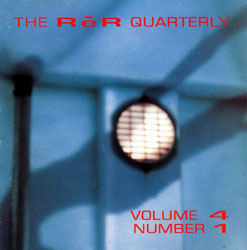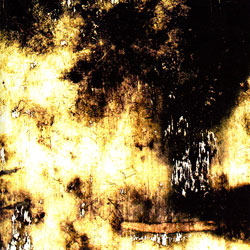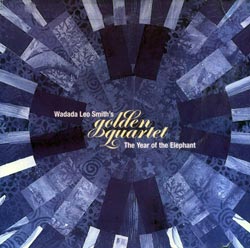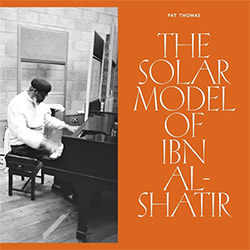
Out of Stock
Quantity in Basket: None
Log In to use our Wish List
Shipping Weight: 6.00 units
Sample The Album:
John Oswald/John Zorn
Biota
Cornelius Cardew
ZGA
If Bwana
Kalahari Surfers + Lesogo Rampolokeng
Koongoortoog (Tuva)
Blitziods
Al Margolis
Tom Nunn
Thinking Plague
Adenoid Quartet
N.O.R.M.A.
Les Sales Combles
R.Deutsch
Martin Burlas
Peter Machajdik
David Myers
Chris Cutler/Fred Frith
Click an artist name above to see in-stock items for that artist.
UPC: 752725001823
Label: Recommended Records
Catalog ID: ReR 0401
Squidco Product Code: 1799
Format: CD
Condition: New
Released: 1991
Country: Great Britain
Packaging: Jewel Tray
| Koongoortoog | Track | |
| The Adenoid Quartet | Ostrich Wheel | |
| John Oswald | Z | |
| Tom Nunn | TP2 | |
| Diledadafish | What's the Point? | |
| Lesego Rampolokeng with The Kalahari Surfers | The Desk | |
| Cornelius Cardew | Vietnam's Victory | |
| Peter Machajdik | Death in 40 Pictures | |
| Tizanio Popoli and N.O.R.M.A. | Circus Music | |
| Al Margolis | Sonnet 2 | |
| David Myers | The Unknown (No. 4) | |
| Thinking Plague | How to Clean Squid | |
| ZGA | Lost Title | |
| Biota | Walk Aside | |
| Martin Burlas | The Cross and the Circle | |
| Blitzoids | Chair | |
| Les Sales Combles | Les Cons Ont Danse. Lait Condense | |
| Chris Cutler and Fred Frith | Encore |
Artist Biographies
• Show Bio for Cornelius Cardew "Cornelius Cardew (7 May 1936 Đ 13 December 1981) was an English experimental music composer, and founder (with Howard Skempton and Michael Parsons) of the Scratch Orchestra, an experimental performing ensemble. He later rejected experimental music, explaining why he had "discontinued composing in an avantgarde idiom" in his own programme notes to his Piano Album 1973 in favour of a politically motivated "people's liberation music". Cardew was born in Winchcombe, Gloucestershire. He was the second of three sons whose parents were both artistsŃhis father was the potter Michael Cardew. The family moved to Wenford Bridge Pottery Cornwall a few years after his birth where he was later accepted as a pupil by the Canterbury Cathedral School which had evacuated to the area during the war due to bombing. His musical career thus began as a chorister. From 1953 to 1957, Cardew studied piano, cello, and composition at the Royal Academy of Music in London. Having won a scholarship to study at the recently established Studio for Electronic Music in Cologne, Cardew served as an assistant to Karlheinz Stockhausen from 1958 to 1960. He was given the task of independently working out the composition plans for the German composer's score CarrŽ, and Stockhausen noted: As a musician he was outstanding because he was not only a good pianist but also a good improviser and I hired him to become my assistant in the late 50s and he worked with me for over three years. I gave him work to do which I have never given to any other musician, which means to work with me on the score I was composing. He was one of the best examples that you can find among musicians because he was well informed about the latest theories of composition as well as being a performer. Most of Cardew's compositions from this period make use of the integral and total serialist languages pioneered by Boulez and Stockhausen. In 1959, Cardew performed in the first British performance of Pierre Boulez's Le marteau sans ma”tre at Dartington International Summer School of Music (having learnt to play the guitar for the occasion as no professional guitar player was available). Indeterminacy and the American experimentalists In 1958, Cardew witnessed a series of concerts in Cologne by John Cage and David Tudor which had a considerable influence on him, leading him to abandon post-Schšnbergian serial composition and develop the indeterminate and experimental scores for which he is best known. He was particularly prominent in introducing the works of American experimental composers such as Morton Feldman, La Monte Young, Earle Brown, Christian Wolff, and Cage to an English audience during the early to mid sixties and came to have a considerable impact on the development of English music from the late sixties onwards. Cardew's most important scores from his experimental period are Treatise (1963Đ67), a 193-page graphic score which allows for considerable freedom of interpretation, and The Great Learning, a work in seven parts or "Paragraphs," based on translations of Confucius by Ezra Pound. The Great Learning instigated the formation of the Scratch Orchestra. During those years, he took a course in graphic design and he made his living as a graphic designer at Aldus Books in London. In 1966, Cardew joined the free improvisation group AMM as cellist and pianist. AMM had formed the previous year and included English jazz musicians Lou Gare, Eddie PrŽvost, Keith Rowe, and one of his first students at the Royal Academy Christopher Hobbs. Performing with the group allowed Cardew to explore music in a completely democratic environment, freely improvising without recourse to scores. While teaching an experimental music class at London's Morley College in 1968, Cardew, along with Howard Skempton and Michael Parsons formed the Scratch Orchestra, a large experimental ensemble, initially for the purposes of interpreting Cardew's The Great Learning. The Scratch Orchestra gave performances throughout Britain and elsewhere until its demise in 1972. It was during this period that the question of art for whom was hotly debated within the context of the Orchestra, which Cardew came to see as elitist despite its numerous attempts to make socially accessible music.Political involvements After the demise of the Orchestra, Cardew became more directly involved in left-wing politics and abandoned avant-garde music altogether, adopting a populist though post-romantic tonal style. He spent 1973 in West Berlin on an artist's grant from the City, where he was active in a campaign for a children's clinic. During the 1970s, he produced many songs, often drawing from traditional English folk music put at the service of lengthy Marxist-Maoist exhortations; representative examples are Smash the Social Contract and There Is Only One Lie, There Is Only One Truth. In 1974, he published a book entitled Stockhausen Serves Imperialism, which denounced, in Maoist self-critical style, his own involvement with Stockhausen and the Western avant-garde tradition. Cardew was active in various causes in British politics, such as the struggle against the revival of neo-Nazi groups in Britain, and subsequently was involved in the People's Liberation Music group with Laurie Scott Baker, John Marcangelo, Vicky Silva, Hugh Shrapnel, Keith Rowe and others. The group developed and performed music in support of various popular causes including benefits for striking miners and Northern Ireland. Cardew became a member of the Communist Party of England (Marxist-Leninist) in the 1970s, and in 1979 was a co-founder and member of the Central Committee of the Revolutionary Communist Party of Britain (Marxist-Leninist). His creative output from the demise of the Scratch Orchestra until his death reflected his political commitment. Cardew stated his attitude towards the avant-garde in Stockhausen Serves Imperialism: Cardew's efforts to politicise culture in Britain were influenced by his relationship with Hardial Bains, the Canadian communist leader and a leading anti-revisionist politician. Bains contributed the lyrics to Cardew's signature song from his later period, We Sing for the Future.Death Cardew died on 13 December 1981, the victim of a hit-and-run car accident near his London home in Leyton. The driver was never found. Musician John Tilbury, in his book Cornelius CardewŃA Life Unfinished suggests that the possibility that Cardew was killed because of his prominent Marxist-Leninist involvement "cannot be ruled out". Tilbury quotes a friend of Cardew's, John Maharg; "MI5 are quite ruthless; people don't realise it. And they kill pre-emptively". A 70th Birthday Anniversary Festival, including live music from all phases of Cardew's career and a symposium on his music, took place on 7 May 2006 at the Cecil Sharpe House in London." ^ Hide Bio for Cornelius Cardew • Show Bio for Al Margolis "Al Margolis (viola/violin/clarinet) was active in the 1980s American cassette underground through his cassette label Sound of Pig Music and is co-founder of experimental music label Pogus Productions, which he continues to run. Active under the name If, Bwana since 1984, his works swing between fairly spontaneous studio constructions and more process-oriented composition. It has been said "that Al Margolis/If, Bwana is some sort of evil genius working with raw materials which are never adapted to a genre or a context, because they create one in that very moment. Those sources are radically altered up to an utterly unrecognizable state, anarchic manifestations moving in compact determination." It's all true....." ^ Hide Bio for Al Margolis
4/2/2025
Have a better biography or biography source? Please Contact Us so that we can update this biography.
4/2/2025
Have a better biography or biography source? Please Contact Us so that we can update this biography.
Track Listing:
John Oswald/John Zorn
Biota
Cornelius Cardew
ZGA
If Bwana
Kalahari Surfers + Lesogo Rampolokeng
Koongoortoog (Tuva)
Blitziods
Al Margolis
Tom Nunn
Thinking Plague
Adenoid Quartet
N.O.R.M.A.
Les Sales Combles
R.Deutsch
Martin Burlas
Peter Machajdik
David Myers
Chris Cutler/Fred Frith
Before April-2006
Recommended Records
Cutler, Chris
Frith, Fred
Various Artists & Compilations
Before April-2006
Search for other titles on the label:
Recommended Records.






![Niblock, Phill / Anna Clementi / Thomas Stern: Zound Delta 2 [VINYL]](https://www.teuthida.com/productImages/misc4/34623.jpg)
![Yoko, Ono / The Great Learning Orchestra: Selected Recordings From Grapefruit [2 CDs]](https://www.teuthida.com/productImages/misc4/35841.jpg)

![Brotzmann, Peter / John Edwards / Steve Noble / Jason Adasiewicz: The Quartet [2 CDs]](https://www.teuthida.com/productImages/misc4/35975.jpg)
![Brotzmann, Peter / John Edwards / Steve Noble / Jason Adasiewicz: The Quartet [VINYL 2 LPs]](https://www.teuthida.com/productImages/misc4/35976.jpg)
![Thomas, Pat: The Solar Model of Ibn-Al Shatir [VINYL]](https://www.teuthida.com/productImages/misc4/36044.jpg)




![Rodrigues, Ernesto / Nuno Torres / Guilherme Rodrigues: Whispers In The Moonlight - In Seven Movements [2CDs]](https://www.teuthida.com/productImages/misc4/35765.jpg)



![Cocks, Laura: FATHM [VINYL]](https://www.teuthida.com/productImages/misc4/36055.jpg)










![Ackerley / Prymek / Turner: All Hope With Sleeping Minds [CASSETTE]](https://www.teuthida.com/productImages/misc4/35950.jpg)
![Myers, David Lee : Tin Drop Tear [BOOK w/ DOWNLOAD]](https://www.teuthida.com/productImages/misc4/36030.jpg)




![Schindler, Udo / Sandy Ewen / Damon Smith: Munich Sound Studies Vols. 4, 5 & 6 [3 CDs]](https://www.teuthida.com/productImages/misc4/35966.jpg)
![Turbulence Orchestra & Sub-Units: Smear Out the Difficulties (Double Live) [2 CDs]](https://www.teuthida.com/productImages/misc4/36048.jpg)


![Perelman, Ivo / Tyshawn Sorey: Paralell Aesthetics [2 CDs]](https://www.teuthida.com/productImages/misc4/35871.jpg)


![Sjostrom, Harri: SoundScapes #4 Festival Berlin 2023 [3 CDs]](https://www.teuthida.com/productImages/misc4/35874.jpg)



![Glenn, Jordan: Flustered [CASSETTE]](https://www.teuthida.com/productImages/misc4/35948.jpg)










![Olencki, Weston : Pearls Ground Down To Powder [VINYL]](https://www.teuthida.com/productImages/misc4/35956.jpg)
![Myers, David Lee: Oculus [2CDs]](https://www.teuthida.com/productImages/misc4/35857.jpg)


![dustsceawung: dustsceawung [CASSETTE w/ Download]](https://www.teuthida.com/productImages/misc4/35753.jpg)




![Halls of the Machine: Atmospheres For Lovers And Sleepers [CASSETTE w/ DOWNLOAD]](https://www.teuthida.com/productImages/misc4/35806.jpg)



![AHC (Alexander Cooper): Lase [2 CDs]](https://www.teuthida.com/productImages/misc4/35754.jpg)



![Fagaschinski, Kai / Yan Jun : Graveyard Processions [VINYL w/ DOWNLOAD]](https://www.teuthida.com/productImages/misc4/35474.jpg)









![Zorn, John / JACK Quartet: The Complete String Quartets [2 CDs]](https://www.teuthida.com/productImages/misc4/35609.jpg)

![Lonsdale, Eden: Dawnings [2 CDs]](https://www.teuthida.com/productImages/misc4/35480.jpg)







![Sanna, Claudio: Compositori Sardi Contemporanei II [2 CDs]](https://www.teuthida.com/productImages/misc4/35317.jpg)







![Zurria, Manuel: Fame di Vento [3 CDs]](https://www.teuthida.com/productImages/misc4/35167.jpg)


![Electric Bird Noise / Derek Roddy: 8-10-22 [CD EP]](https://www.teuthida.com/productImages/misc4/35970.jpg)








![Elephant9 : Mythical River [VINYL]](https://www.teuthida.com/productImages/misc4/34624.jpg)



![Elephant9 with Terje Rypdal: Catching Fire [VINYL 2 LPs]](https://www.teuthida.com/productImages/misc4/35355.jpg)
![Deerlady (Obomsawin, Mali / Magdalena Abrego): Greatest Hits [VINYL]](https://www.teuthida.com/productImages/misc4/34876.jpg)







![Surplus 1980: Illusion of Consistency [CD]](https://www.teuthida.com/productImages/misc4/35069.jpg)
![Staiano, Moe: Away Towards the Light [VINYL + DOWNLOAD]](https://www.teuthida.com/productImages/misc4/35037.jpg)



![Caveira (Gomes / Sousa / Abras / Ferrandini): Ficar Vivo [VINYL]](https://www.teuthida.com/productImages/misc4/34643.jpg)
![Coley, Byron: Dating Tips for Touring Bands [VINYL]](https://www.teuthida.com/productImages/misc4/17906.jpg)

![Lost Kisses: My Life is Sad & Funny [DVD]](https://www.teuthida.com/productImages/misc4/lostKissesDVD.jpg)